Istanbul Design Biennial Highlights
Our favorite picks from Istanbul’s first ever design Biennial

Istanbul’s design community has come into its own as a powerful international voice. As a testament to their rightful place in the international creative community, the city’s Foundation for Culture and Arts hosted the city’s first-ever Istanbul Design Biennial bringing together Turkish and international artists in a multidisciplinary showcase.
Separated into two distinct exhibition spaces curated by Emre Arolat and Joseph Grima, respectively, the artists and exhibits were chosen in accordance with the Biennial’s theme, “Imperfection”. Each curator created a sub-theme that guided their individual exhibition. Arolat’s installation at the Istanbul Modern centered around the idea of “Musibet” (calamity) and included works from a multitude of mediums. Located not far from “Musibet”, Grima’s exhibition, “Adhocracy” sprawls out over the floors of the Private Galata Greek Primary School. Winding throughout the school, “Adhocracy” explores the evolving relationship between the act of design and the product and the growing trend towards consumer made products. Although overwhelmed by the diverse collection of artist and ideas at both exhibits, we were able to narrow it down to 13 standout pieces.
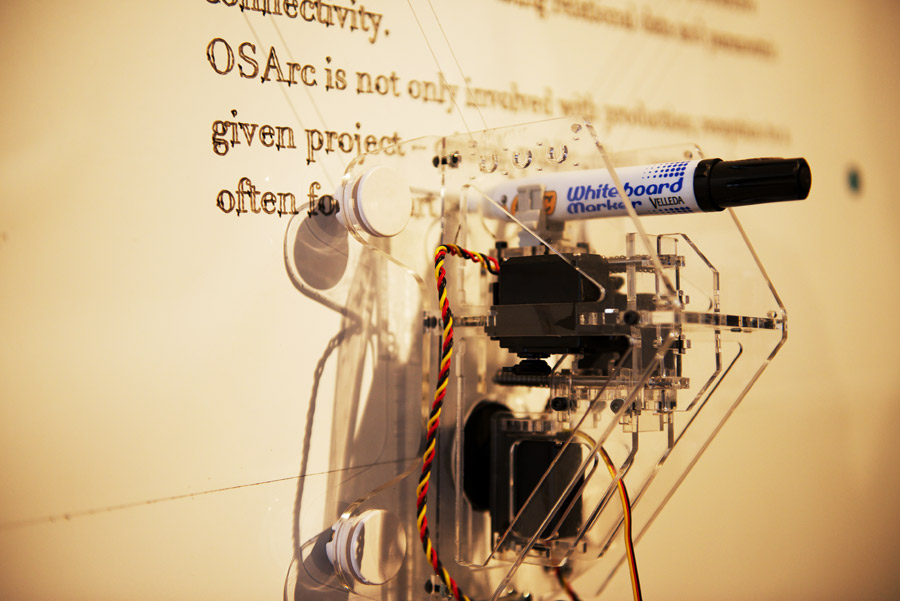
Open Source Architecture Manifesto, Walter Nicolino and Carlo Ratti
When Italian architect Carlo Ratti was asked to write an article for Domus magazine on the subject of open source architecture, he decided to create an answer that was reflective of the question. Creating a Wikipedia page dedicated to the subject, Ratti invited other architects to contribute to his definition and left it open for others to continually modify. Physically materialized at the Biennial by a robotic arm, one was able to observe Ratti’s article in real time and the results of its constant editing.
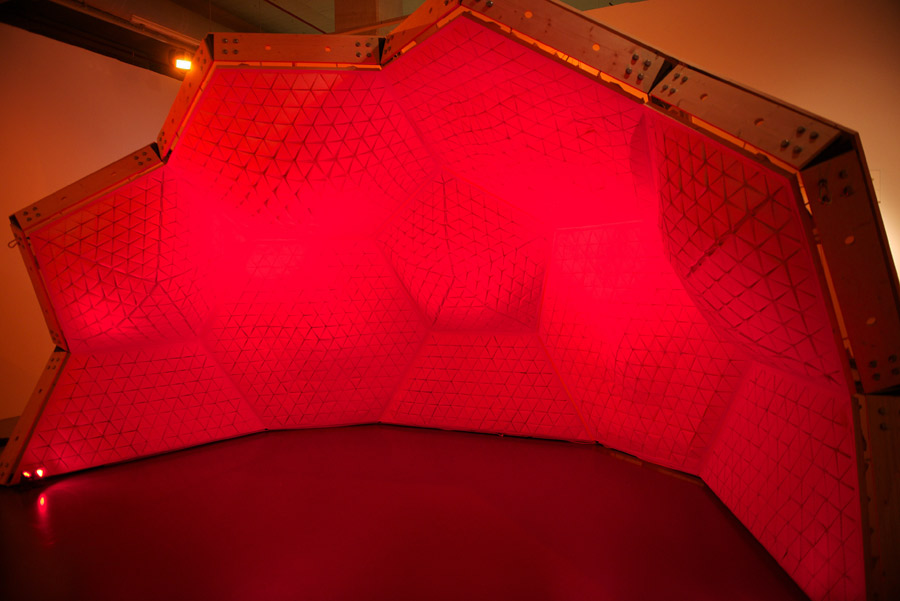
Cerebral Hut: An Ambient Form without Form, Güvenc Özel
Fascinated by technology and its intersection with social theory, German architect Güvenc Özel created the Cerebral Hut as a way to portray brain activity with an architectural installment. Visitors are invited to place on a specially designed helmut which monitored brain activity and transmitted signals to Özel’s hut accordingly. Animated by a breathing motion, Özel’s geometric, bright red hut and helmut made visitors into integral part of the exhibit.
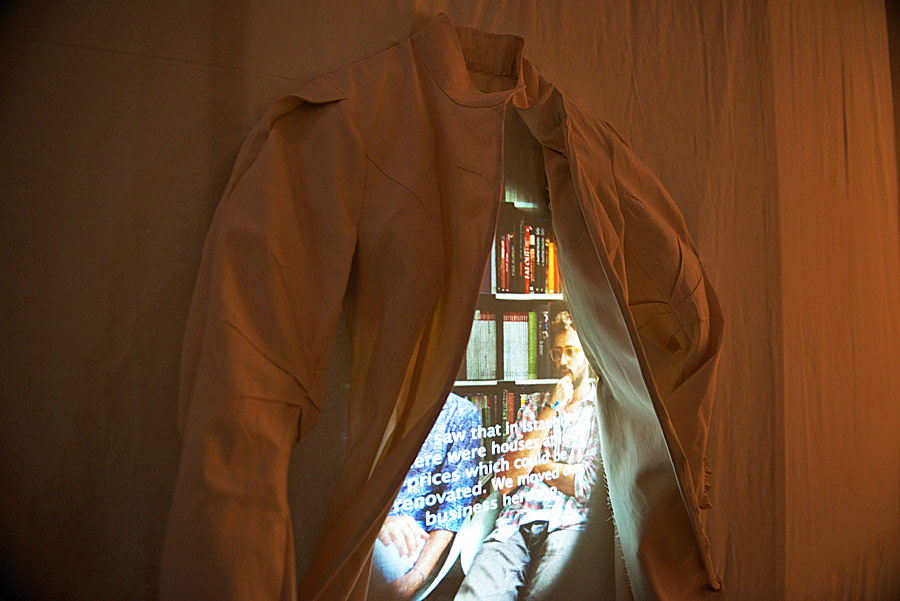
Precise Rhythm, Bahar Korçan
Turkish fashion designer Bahar Korçan incorporates clothing and video into her reflection on her experiences in Istanbul’s transforming Galata district. Using her own experiences, Korçan explores both the negative and positive sides of urban transformation. Inherently personal in nature, Korçan’s clothing created an intimacy between the work and the viewer.
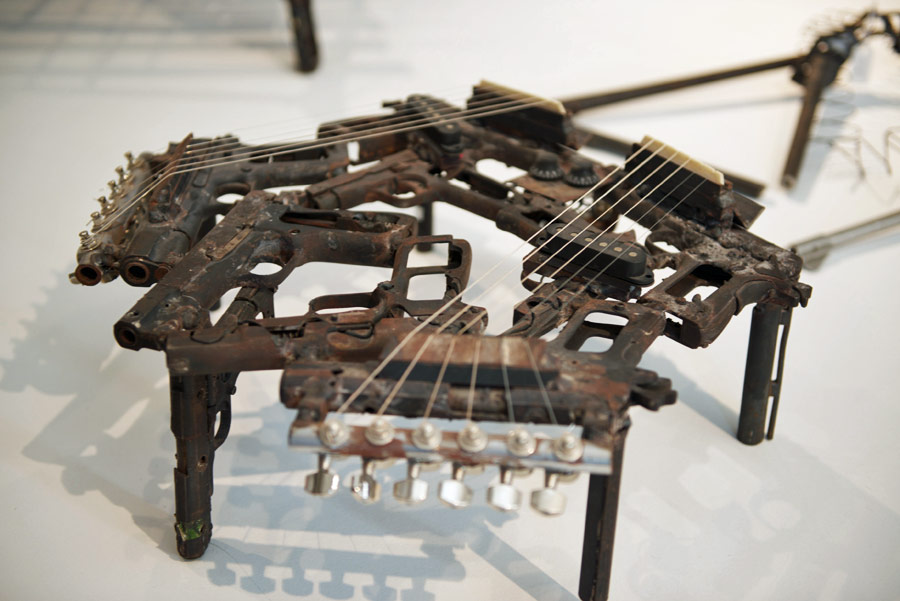
Imagine, Pedro Reyes
In a response to the high rate of gun-related deaths in his hometown, Culiacán, Mexican artist Pedro Reyes collects illegal weapons and transforms them into positive consumer goods. At the Biennial, Reyes debuted the latest iteration of his product, an entire collection of musical instruments made out of confiscated guns. An innovative upcycling product, Reye’s instruments are also a social commentary on the energy and materials that go into creating weapons rather than implements of art.
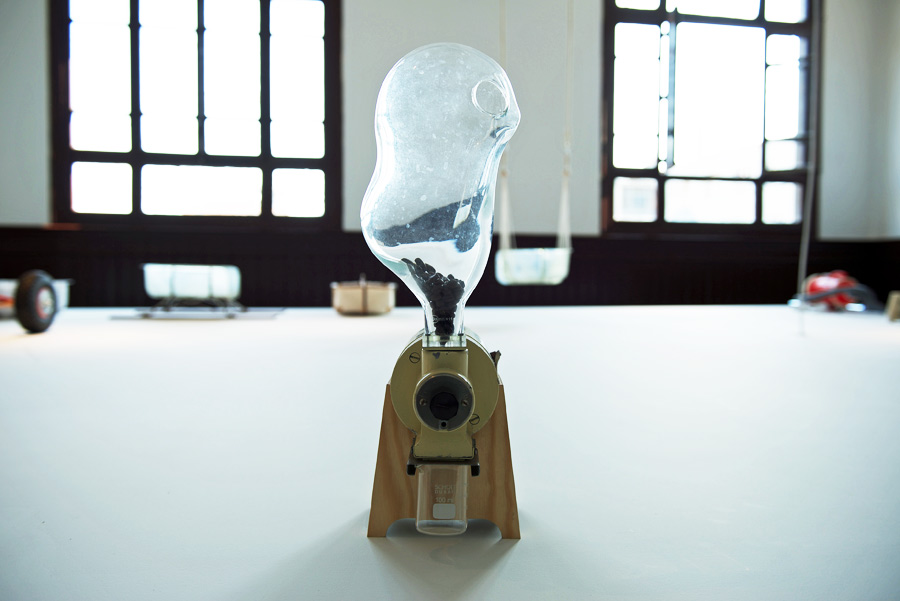
Open Structures: Coffeegrinder 2, Unfold
Initially started by the Institute without Boundaries, Open Structures is a product design project based off of the model for software development. By providing a list of ready made parts, designers are invited to create products and contribute to OS’s ever growing list of designs. Part of Grima’s “Adhocracy” exhibit, Open Structures showcased a range of their designs including our favorite a coffee grinder by the Belgian design firm Unfold.
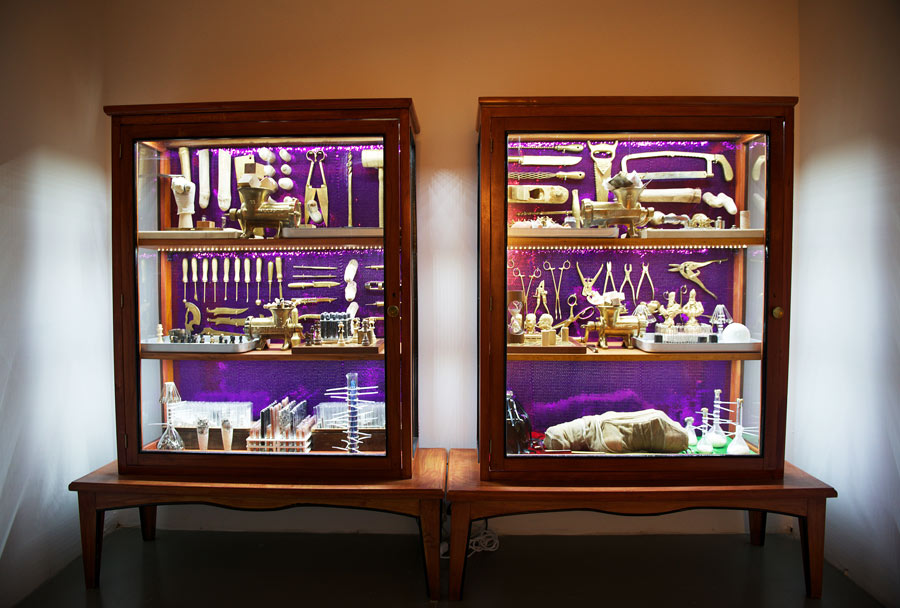
Dönme Dolap, Levent Şentürk
Turkish artist and professor Levent Şentürk uses a collection of objects to excavate the discourse that surrounds the theory of biopolitics and the transformations cities undergo when under conservative regimes. A kind of cabinet of curiosities, Şentürk’s sculpture uses a range of objects rather than language in order to communicate the clashes between different political theories.
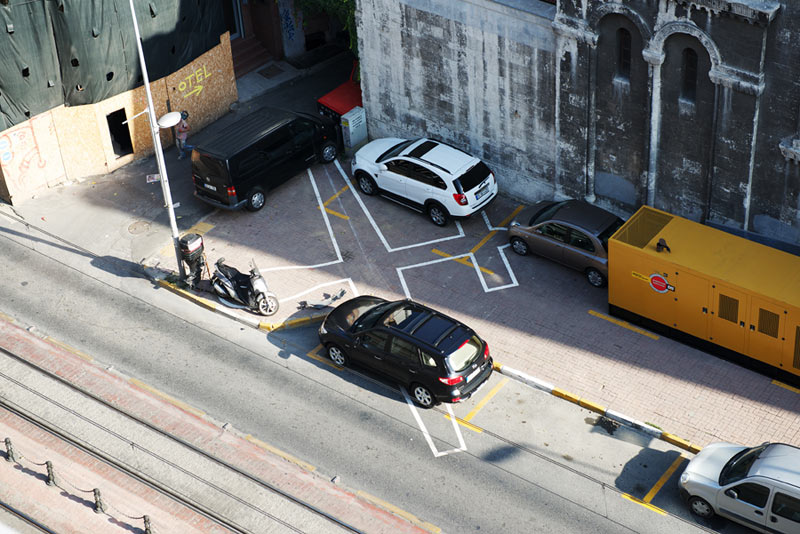
Drone Shadow, James Bridle
Reflective of recent concerns in Istanbul about the increased use of drones and the effects they will have on privacy in the city, London-based writer and technologist James Bridle‘s installation was a particularly timely piece at the Biennial. A simple outline of a drone etched on the ground outside of the Galata Greek School, Bridle’s work was designed to be seen from above. By subverting the way the viewer typically interacts with drones, Bridle comments on the drone’s invisibility from a ground perspective and what that might mean for privacy.
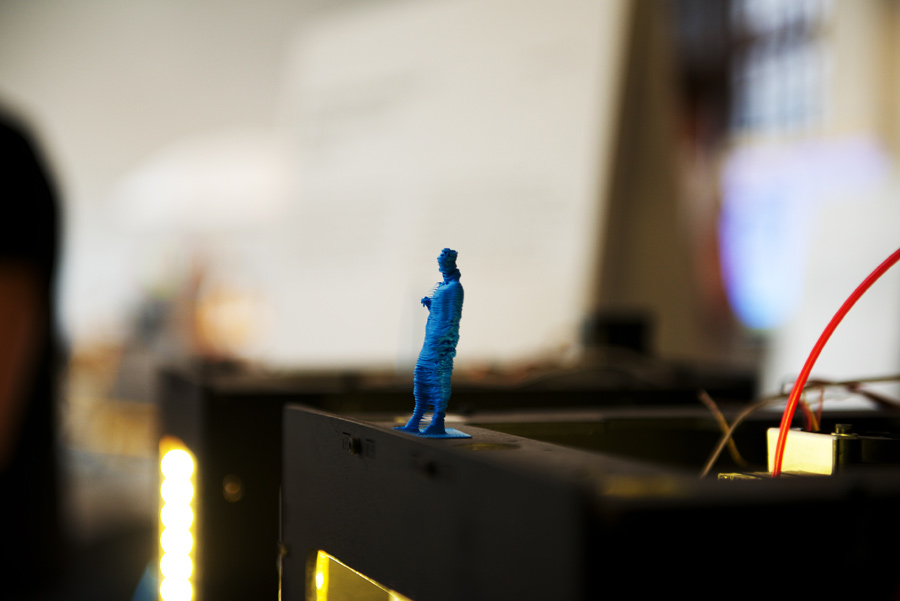
Be Your Own Souvenir, blablabLAB
Exploring the interaction between virtual data and its possible material manifestation, blablabLAB‘s installation invited visitors to become a part of the manufacturing process. By connecting a 3D printer to three Kinect sensors, blablabLAB was able to quickly render 3D printed models of each participant. An innovative souvenir, the installation successfully collapsed the manufacturing process and the user’s interaction into a singular experience.
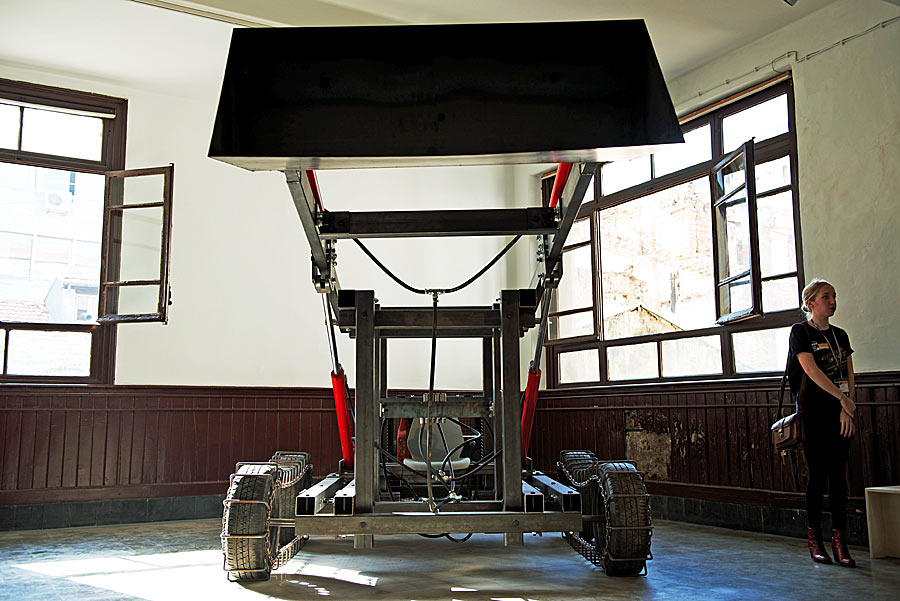
Global Village Construction Set, Open Source Ecology
Started by a group of farmers and scientists from Ohio, Open Source Ecology‘s exhibit followed a similar thought process to that of Open Structures. With international farmers in mind, the group created a set of core function parts that could be reconstructed to create a line of 50 essential farming machines. Cheaper to produce than individual machines, Open Source Ecology hopes to provide farmers with sustainable practices and increased flexibility.
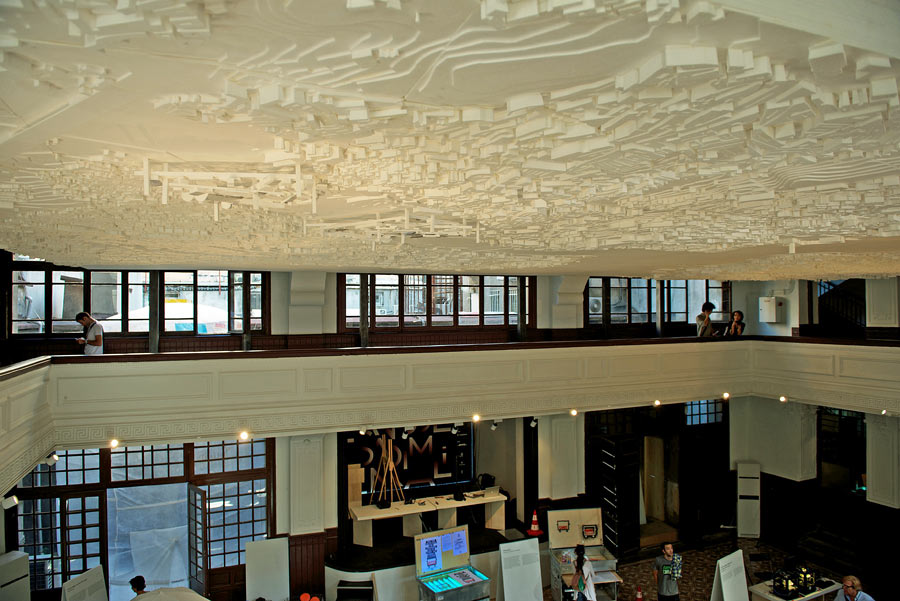
Haliç Center, Yona Friedman
Sprawled across the Galata Greek School, French artist Yona Friedman brought the rich topography of Istanbul’s hilly existence on the Bosphorus to life. Rendered in styrofoam and mounted to the ceiling, Friedman’s installation draws the viewer’s attention to the complex and rhythmic nature of the city’s geography. Made of basic building blocks, the installation commands the viewer to pay attention to the way the different districts and features of the city flow into one another.
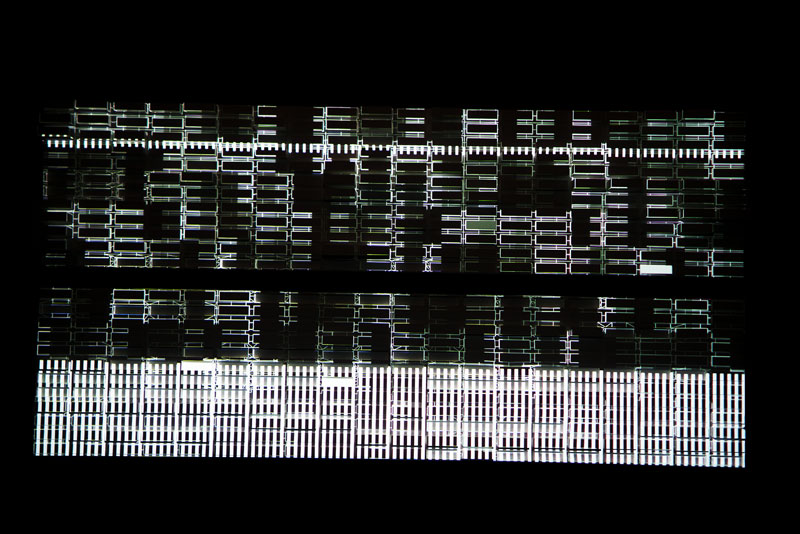
Augmented Structures Project v2.0, Refik Anadol and Alper Derinbogaz
Based upon soundscapes, Turkish artists Refik Anadol and Alper Derinbogaz exhibit compared two dissimilar districts in Istanbul. Using a multilevel, lighted map, the designers were able to succinctly visualize what is usually invisible information, enabling the viewer to literally see the differences in activity between the two neighborhoods. An easily digestible image, the soundscape showed the potential insight new media can provide when trying to understand the cultural landscape of a city.
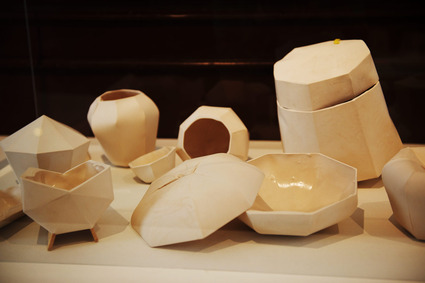
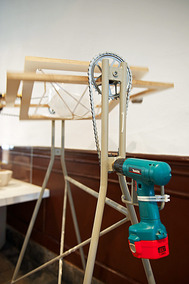
Improvisation Machine, Annika Frye
Based on the idea of merging serial manufacturing with artistic improvisation, German artist Annika Frye‘s Improvisation Machine caught our eye. Simply constructed out of a wood frame and a power drill, Frye’s machine is able to cast different ceramic objects without using a fixed mold. A hybrid between the serendipitous and the consistent, Frye’s machine exhibited the beauty in flexible manufacturing practices.
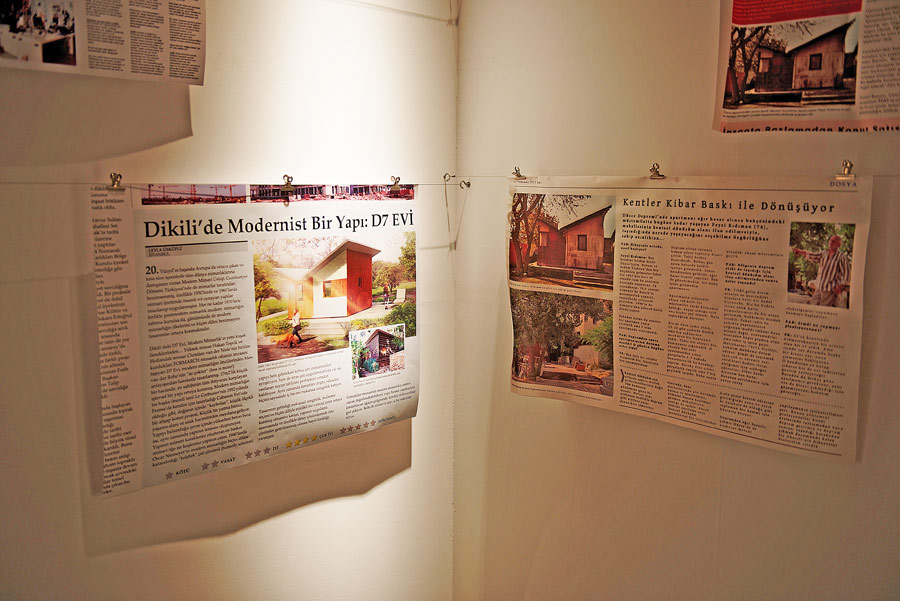
Design or Make, PAB Architects
Exploring the persuasiveness of branding and its implications for what makes something crafted or designed, three Turkish architects at PAB compare crafted slum houses with contemporary designer housing project. Using newspaper articles, the architects tracked the publically approved tear down of a building crafted in the slums and then its subsequent, celebrated rebuild under the guise of contemporary housing project. Simplistic in its design and execution, the installation’s message was a powerful one as it revealed the irony and sometimes ludicrousness of delineating craftsmanship from design.
The Istanbul Design Biennial ends on 12 December 2012.
Images by Josh Rubin












